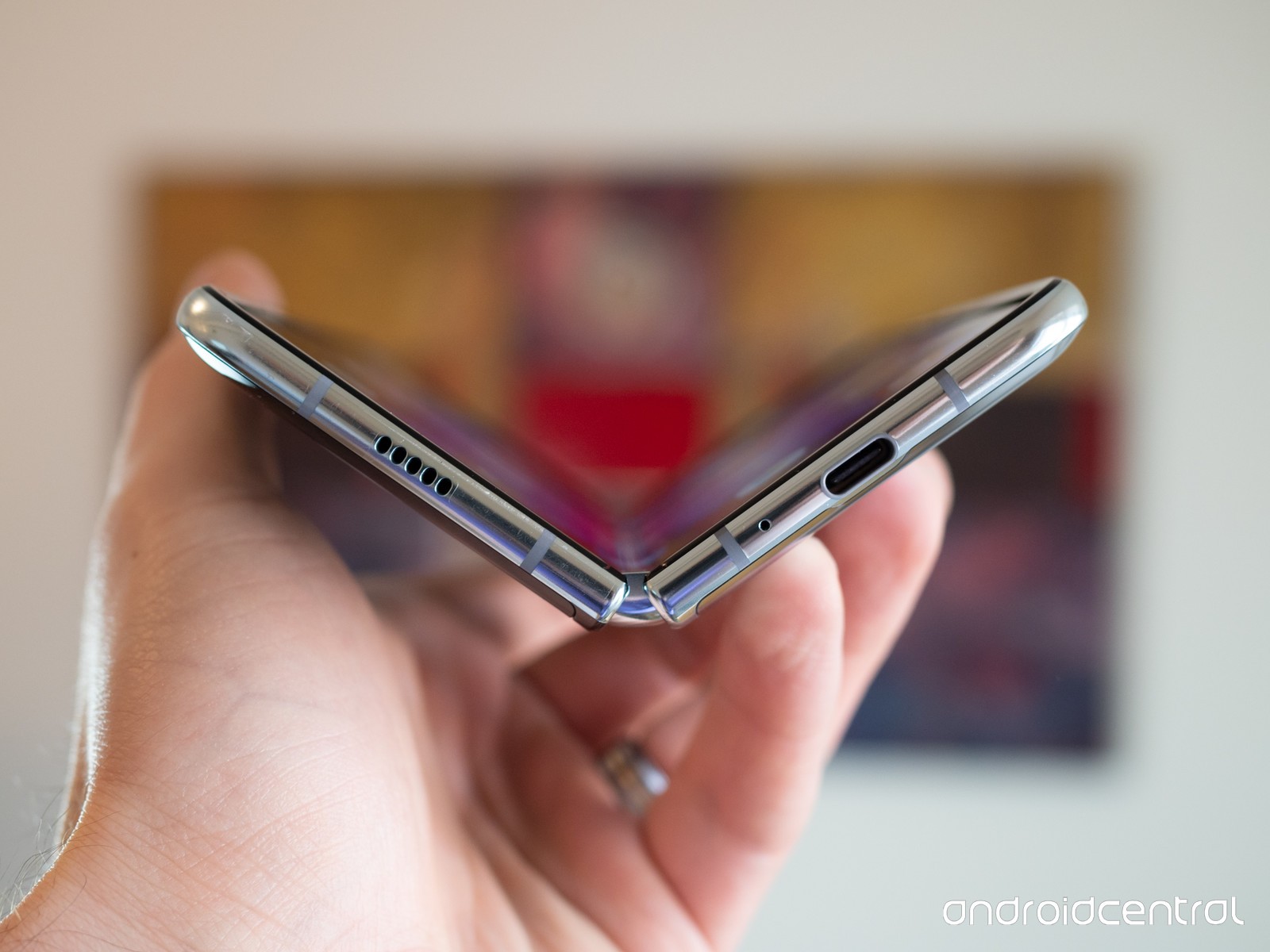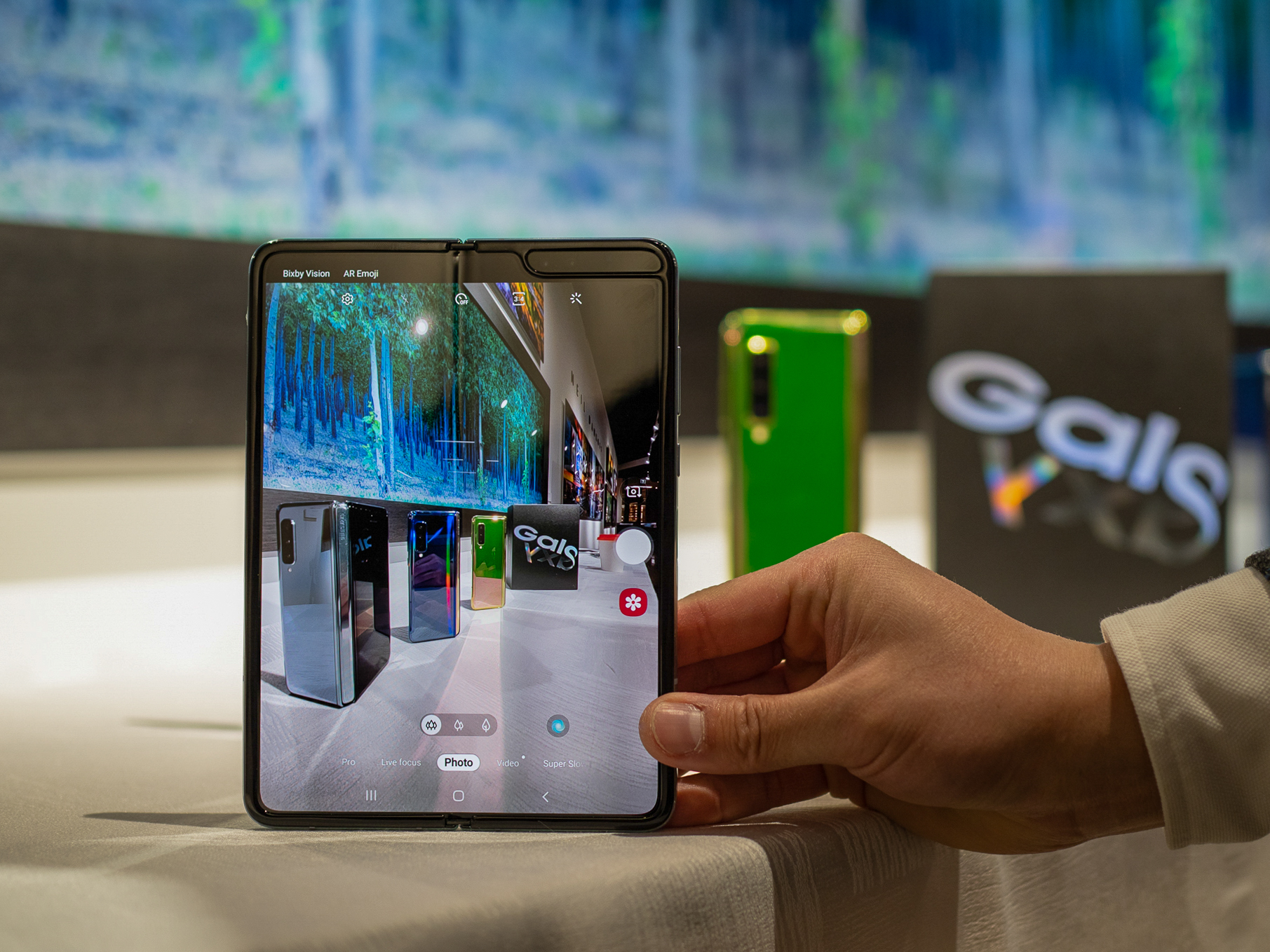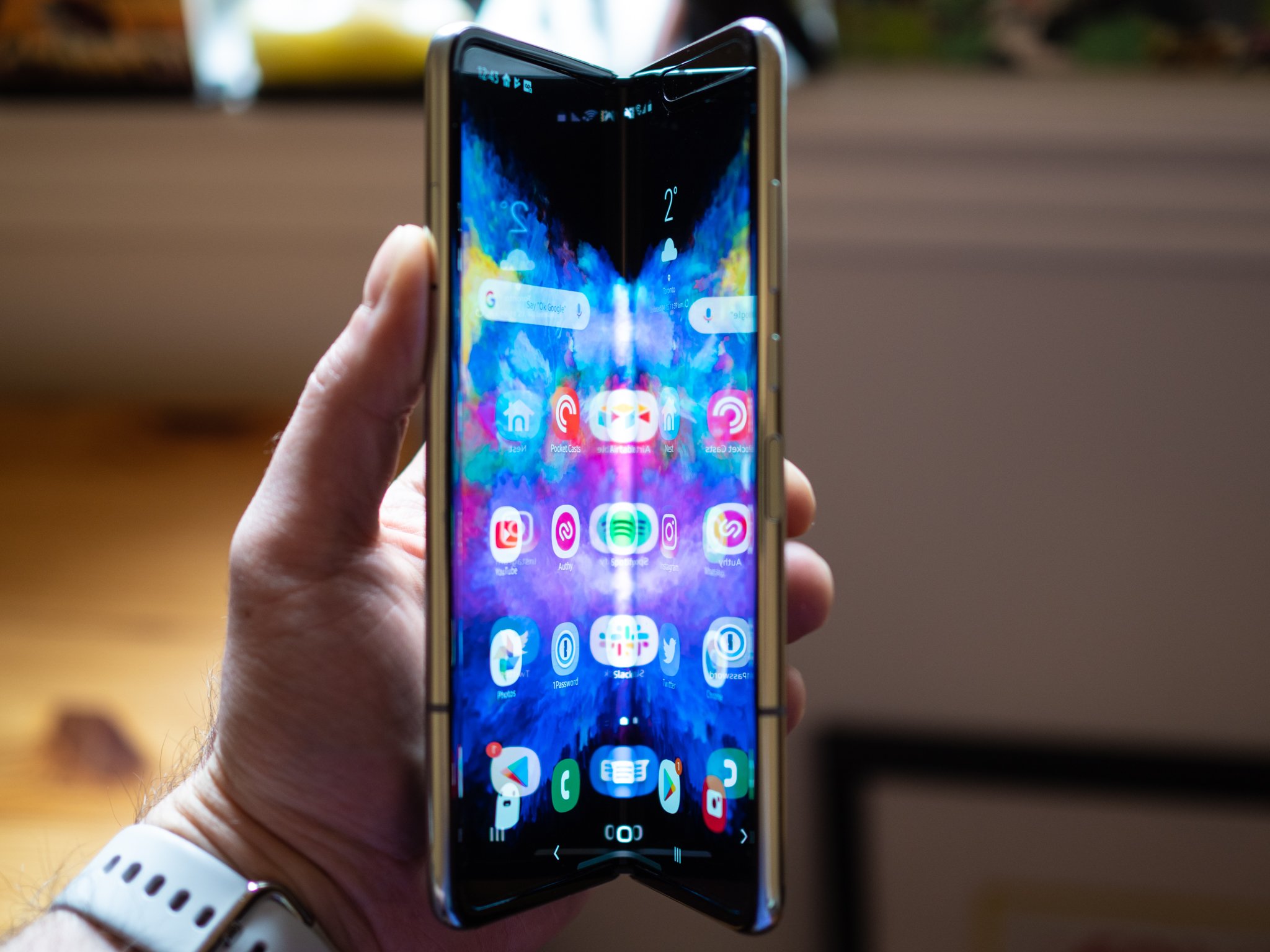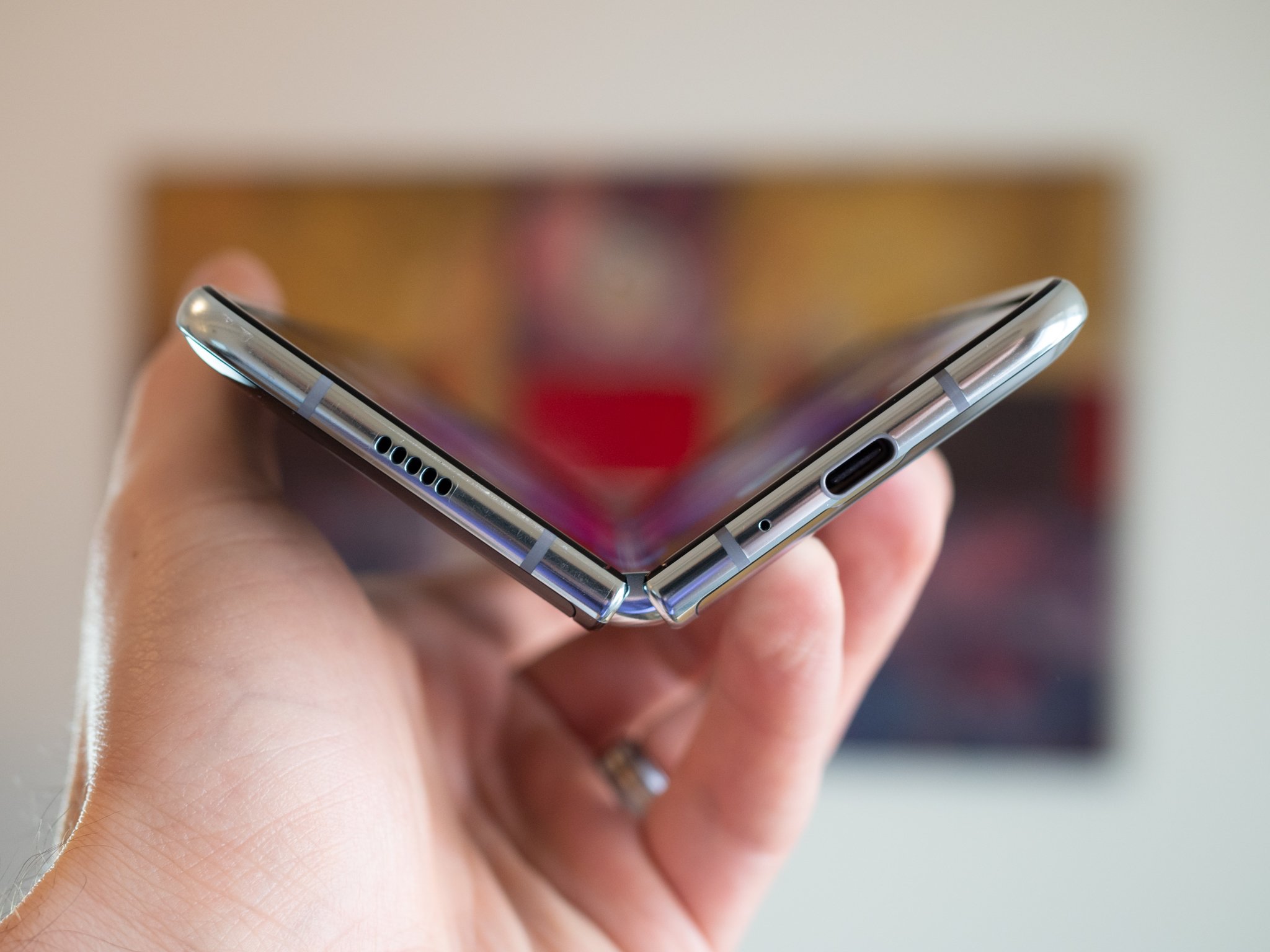Has the Samsung Galaxy Fold already failed?

Right now. Right this very minute, there are only a dozen or several Samsung Galaxy Folds in the wild, and all of them in the hands of reviewers. Of that very small number, four of them have already failed. Or, at least, the screens have.
Rather watch than read? Hit play on the video above!
Two of the Galaxy Folds, the ones in the possession of Marques Brownlee of MKBHD fame and Mark Gurman of Bloomberg were apparently the result of, or may simply have been compounded by, removing a polymer protective film that shouldn't have been removed.
The phone comes with this protective layer/film. Samsung says you are not supposed to remove it. I removed it, not knowing you’re not supposed to (consumers won’t know either). It appeared removable in the left corner, so I took it off. I believe this contributed to the problem. pic.twitter.com/fU646D2zpYThe phone comes with this protective layer/film. Samsung says you are not supposed to remove it. I removed it, not knowing you’re not supposed to (consumers won’t know either). It appeared removable in the left corner, so I took it off. I believe this contributed to the problem. pic.twitter.com/fU646D2zpY— Mark Gurman (@markgurman) April 17, 2019April 17, 2019
The phone comes with this protective layer/film. Samsung says you are not supposed to remove it. I removed it, not knowing you're not supposed to (consumers won't know either). It appeared removable in the left corner, so I took it off. I believe this contributed to the problem.
PSA: There's a layer that appears to be a screen protector on the Galaxy Fold's display. It's NOT a screen protector. Do NOT remove it.
I got this far peeling it off before the display spazzed and blacked out. Started over with a replacement. pic.twitter.com/ZhEG2BqulrPSA: There's a layer that appears to be a screen protector on the Galaxy Fold's display. It's NOT a screen protector. Do NOT remove it.
I got this far peeling it off before the display spazzed and blacked out. Started over with a replacement. pic.twitter.com/ZhEG2Bqulr— Marques Brownlee (@MKBHD) April 17, 2019April 17, 2019
The other two, one from Dieter Bohn of the Verge and another from Steve Kovach of CNBC, just seem too have just failed.
https://twitter.com/backlon/status/1118573836226658304 https://twitter.com/robotodd/status/1118574478009626624
OK, two straight up failures and two failures that may have been prompted or exacerbated by user error.
Well, kind of error. Retail units will apparently have a warning note telling people not to remove the polymer protective layer. The review units, despite arriving in what looked like retail packaging, didn't have any such visual warning or reminder, though most if not all were verbally warned not to remove.
Master your iPhone in minutes
iMore offers spot-on advice and guidance from our team of experts, with decades of Apple device experience to lean on. Learn more with iMore!
Also, other reviewers, who are in the majority, haven't had this problem. My friend and colleague, Danial Bader of Android Central says he never once looked at the screen and even though he should peel the film off. He's a high order nerd and he's absolutely loving the experience of the Fold.
In a statement, Samsung said: "We will ensure this information is clearly delivered to our customers."
Mark and MKBHD aren't dummies, though. We, tech reviewers, gadget nerds, everyday customers, all of us, have been operantly conditioned to remove plastic films, even Samsung's own Galaxy S10 has a plastic film on it that can be removed. Especially when they look like they can be removed. Extra especially when, like in Mark's case, they seem like they're curling up already, almost begging to be removed.
If the film shouldn't be removed, you shouldn't be able to remove it.
Here's the thing, though: If a polymer film shouldn't be removed, it should be designed so that it can't be removed. There shouldn't have to be warning stickers, people shouldn't have to remember months from now or worry a friend or family member will see an edge curling up and start pulling on it. It simply shouldn't be possible.
If it is removed, it's also easily understandable that the screen could be more easily scratched or scuffed. Not so easily understandable that it would fail completely.
And if it is such a massive potential point of failure, you don't just slap a sticker on it so you can ship, you take it as a giant warning sign, as neon, that it's just not technologically ready to ship.
The cause or causes of the other set of failures, the ones that didn't remove the film, isn't as clear. The Verge "saw our review unit break after just a day of use when (we think) a piece of debris got lodged under the folding display and damaged the OLED panel."
I'll pause so you can make your MacBook keyboard jokes, but for something that costs more than any baseline MacBook and is already packed up and ready to ship, that's just about the last thing anyone wants to hear.
The innovation dilemma
Now, I'm on record as saying I think foldables have a promising future. Been there. Made the video. Link in the description. We humans have been folding things for eons, in the past as books and wallets and even flip phones. Now, still, as laptops. The history of foldables is the history of technology.

But that technology has to be right, not just right now.
Being first to market gets a lot of attention, especially from often jaded, cynical tech and business model who go through new devices the way most people go through paper towels.
Technology has to be right, not just right now.
We spend almost no time with most phones, moving quickly from one to the next, so we don't experience them the way most people do, living with them, for years. But, somehow, we seem to get just as bored by them. More so even. So much so that we start to crave the different even and often especially when it's not the better and may well be for the worse.
We're desperate for the new, the shiny, and sure, the foldable, and manufacturers are desperate to give it to us, and first, just so they can gobble up the attention we'll willingly throw at them.
There is absolutely no advantage to being first if the road isn't finished and you drive off the cliff.
But there is absolutely no advantage to being first if the road isn't finished and you drive off the cliff. Sure, you're a spectacle, for a hot minute, but then everything blows up and you're just a hot mess.
All in the name of innovation which we've somehow come to conflate with simple novelty.
To quote Horace Dediu of Asymco
There is another form of ignorance which seems to be universal: the inability to understand the concept and role of innovation. The way this is exhibited is in the misuse of the term and the inability to discern the difference between novelty, creation, invention and innovation. The result is a failure to understand the causes of success and failure in business and hence the conditions that lead to economic growth.
We live in a time where commentary is mistaken, vendors misguided, and consumers misinformed by the constant misunderstanding and misuse of the word innovation.
Some company shows off a render of a triangular or donut-shaped phone and it's hailed as new, fresh, and innovative, even if it never ships. Other companies, hell most companies, make phones with all new optics and internals but mostly look the way they did before, because that look worked, and we're all bored now.
We're literally contributing to the dumbing down of the consumer base, but, hmmm, donut shaped.
No company is perfect. Samsung had battery issues that forced the recall of the Galaxy Note 7 and even the Galaxy S10 had its face scan tricked by YouTube videos and its fingerprint sensor by a 3D printout. Google had bad OLED panels in the Pixel 2 XL. Huawei is caught up in a myriad of security concerns. Apple had antennagate back in the day and most recently chose not to ship their AirPower inductive charger because the technology simply wasn't ready. Not with packaging or a sticker that said only to use it on a fully shielded icepack, but not at all.
Foldables? They're not even out of kindergarten yet.
Because, when you're shipping consumer technology, you have to be patient. You can't just wait until the moment it can walk to shove it out the door. You have to let it mature, graduate grade-school at least before you ship.
And Foldables? They're not even out of kindergarten yet.
Could vs. should
I'm hopefully Samsung can ride this out. That film is going to be a splinter in the mind of everyone who sees it, and how well it holds up over time is going to be an open question for a long time. Likewise, if debris is getting into that gap and killing the display. All we can do is wait and see. But, if a month or two from now, no one even remembers this because we're all well onto our next couple of gates, that's great.

But those two issues are among the least that currently worry me about the fold.
Even when working as designed, that protective layer is a showstopper. So is the plastic of the display and the crease down the middle. The hardware might have spent a decade in the oven already but it's still not fully baked. The concept is still too compromised. Samsung, the company that has resolutely, steadfastly refused to embrace the notch or ditch the headphone jack and SD card slot, has willingly, exuberantly done all of those things just to ship the Fold. With just about the biggest pirate patch notch ever.
Even when working as designed, the 5G modem requires so many RF windows, so much space due to the extra chip, and so much power due both to the draw and the space no longer available for battery, all for a network that still has almost no deployment and absolutely no compelling use cases. At least not yet. It's another compromise in an already compromised device and for another technology that not only won't benefit the vast majority of people, but won't even be available to them for an eternity in gadget time.
The Galaxy Fold may not be a prototype but it remains to be seen if it's a product or a very public beta.
Even when working as designed, the apps that use Samsung's version of continuity are a tiny, tiny subset of those available and far too few to be workable for any real person. And that's still only counting the few and far between apps that have usable, never mind good, tablet versions. Both Google and Samsung have developer conferences. Yet, instead of introducing the frameworks for foldables, giving developers a few months and a ton of incentives to get their apps ready for launch, the Galaxy Fold is instead launching with support from only a tiny fraction of apps.
Even when working as designed, The Galaxy Fold doesn't really work. It may not be a prototype anymore but it's also not yet a product. It's more of a public beta, and one you have to pay almost $2K for the privilege of testing. The price of two Galaxy S10s. A MacBook Pro or, like, 4 Xbox One X.
The swim back
As much as conservative aunt Apple waits a decade before shipping their first phone or tablet, crazy uncle Samsung seems happy to throw everything on the wall, as fast as possible, just to see what sticks. And that's great. That's terrific, we need a good balance of both. Up until it falls out of balance and things stop reaching the wall and just goes splat all over the floor. And your shoes.

But, and this is the important part, we always, all of us, have to be straight up call it as it is. If you want to beta test and have $2K to spare, crazy uncle Samsung has a partially baked foldable phone for you.

Rene Ritchie is one of the most respected Apple analysts in the business, reaching a combined audience of over 40 million readers a month. His YouTube channel, Vector, has over 90 thousand subscribers and 14 million views and his podcasts, including Debug, have been downloaded over 20 million times. He also regularly co-hosts MacBreak Weekly for the TWiT network and co-hosted CES Live! and Talk Mobile. Based in Montreal, Rene is a former director of product marketing, web developer, and graphic designer. He's authored several books and appeared on numerous television and radio segments to discuss Apple and the technology industry. When not working, he likes to cook, grapple, and spend time with his friends and family.
